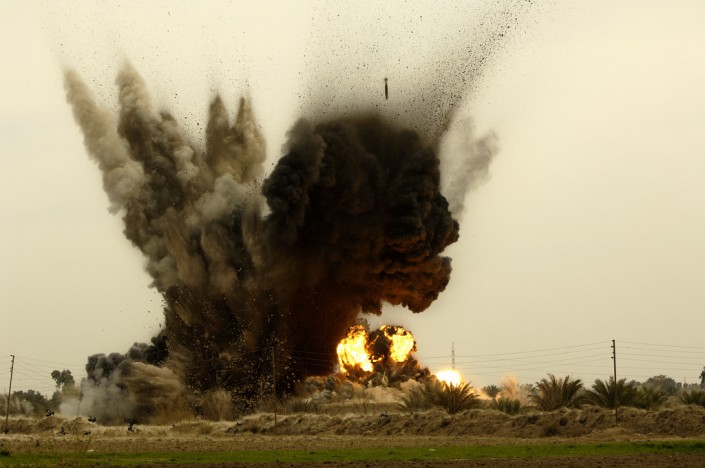Resource Library
Insights | Series II | No. 6 | September 2014
CONFLICT AND SECURITY: Polls Key to Understanding and Defeating ISIS
 When the Islamic State (ISIS) suddenly began to dominate headlines, their quick takeover and brutal acts surprised the world-but it shouldn’t have. Earlier this year, as ISIS slowly gained ground in Iraq and Syria, polls had revealed a sea change in attitudes that opened the door to the movement’s seizure of Mosul in June and subsequent sweep across northern and western Iraq. Insecurity was rampant in those Sunni regions; economic conditions were deteriorating; and alienation from the Shia-majority government was increasingly pervasive.
When the Islamic State (ISIS) suddenly began to dominate headlines, their quick takeover and brutal acts surprised the world-but it shouldn’t have. Earlier this year, as ISIS slowly gained ground in Iraq and Syria, polls had revealed a sea change in attitudes that opened the door to the movement’s seizure of Mosul in June and subsequent sweep across northern and western Iraq. Insecurity was rampant in those Sunni regions; economic conditions were deteriorating; and alienation from the Shia-majority government was increasingly pervasive.
The security collapse in the Sunni regions was dramatic by early 2014, as shown by polling by IIACSS, an Iraqi market research firm, for Gallup International ™s World Social Values Survey. Some 21% of residents in Diyala and fully 25% of people in Nineveh said a family member had suffered a crime in the past year. In contrast, just 1% of families in Basra in the mostly-Shia south had experienced such violence. Sentiment was strong that security was deteriorating in the mostly-Sunni west (a massive 84%) and north (55%), while more than two-thirds said it was improving in the south, a Greenberg poll found.
INTERNATIONAL DEVELOPMENT: China’s New Open Door: The E-Commerce Boom
 Our second quarterly survey of businesses across China, conducted in May and June for the China Beige Book , highlights the phenomenal growth e-tailers are experiencing there. They report soaring sales, big revenue gains and rising sales prices. But not only are these businesses booming; online sellers are out-performing bricks-and-mortar retailers across the board.
Our second quarterly survey of businesses across China, conducted in May and June for the China Beige Book , highlights the phenomenal growth e-tailers are experiencing there. They report soaring sales, big revenue gains and rising sales prices. But not only are these businesses booming; online sellers are out-performing bricks-and-mortar retailers across the board.
These trends can’t be ignored by anyone interested in development – or in retail opportunities –as the world’s most populous nation shifts to a more consumer-focused economy. Retail in China is leapfrogging from traditional mom-and-pop stores to the internet age, as affluent and connected shoppers prefer the convenience of online shopping and seek out alternatives to lackluster local offerings.
Ask the Survey Doctor: How do you understand morality?
If you are struggling with surveys, evaluations, assessments, or market research in developing countries, click here to email the Survey Doctor with your question.
Q. “Restoring normality” is a key task for assistance providers in post-conflict environments as well as for those working in counter-insurgency or disaster zones. It’s particularly difficult to assess and decide priorities as well as to measure progress in such places. Yet how do you measure “normality”? And what metrics can we use to do it?
A. Normality is a key goal of conflict resolution and humanitarian efforts – and like any other development goal, it needs to be monitored and evaluated. As Michael O’Hanlon and Jason Campbell have written, “The experience of successful counterinsurgency and stabilization missions leads us to place a premium on tracking trends in the daily lives of typical citizens.” Political and counter-insurgency theory suggests that satisfaction with living conditions boosts public support for governments – and data back this up.
But measuring normality is a challenge. The basic concept is hard to pin down. Moreover, levels of development and expectations vary drastically, and the areas of concern may be difficult or impossible for outsiders to access. However, solutions to this problem can be found.



